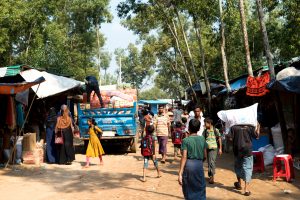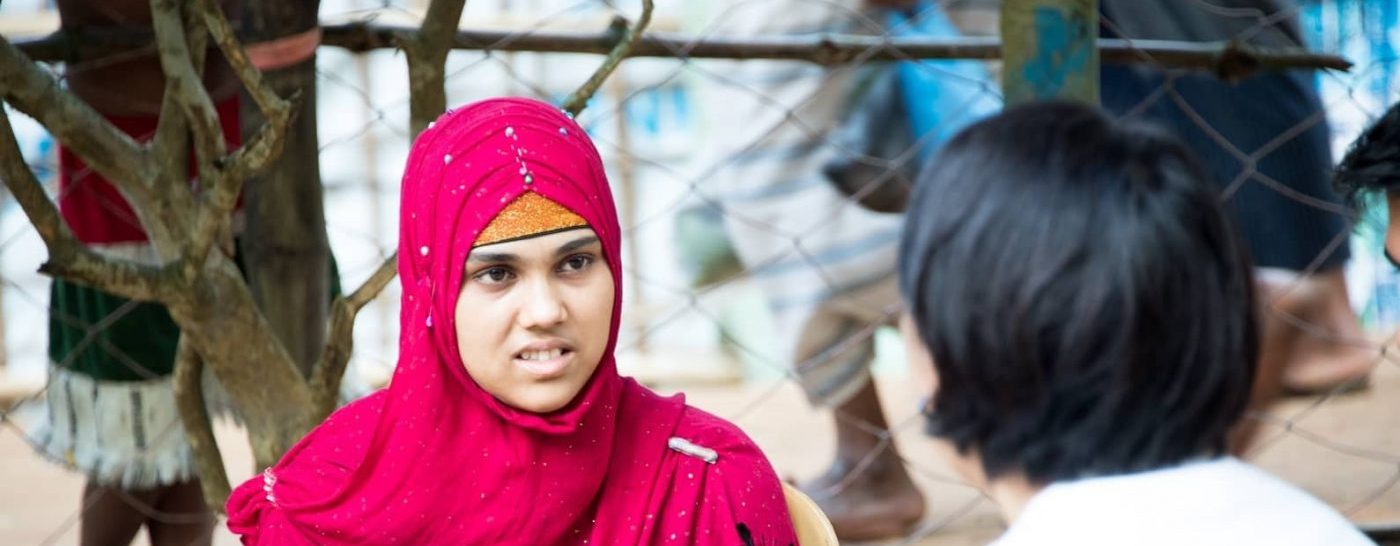Jahida, 17 – Testimony of Rohingya
Published 27th December 2018
It is said that half of the camps refugees are children. Minors who lost their parents and families or got lost. She is 17 years old, and still has a little girls’ voice. To the question: What kind of job would like to do? She answers joyfully: “I would want to work in any kind of field, as long as the opportunity presents itself I would do anything. But I really like clothes so if it could be possible I would like to work with clothes”
(Akiko, Doctors of the World Nurse)
I arrived in Bangladesh in December 2017. My father died before, on August 25th 2017. My mother was killed during the riots last August. I do not know who killed her as at that time it was chaos: there were arson, shooting, rape, and so many horrible things happened all around.
I have an 18 year old brother and a 12 year old sister. I lost them as we were fleeing to Bangladesh. I have been looking for them ever since: through the internet, CIC (Camp In Charge), announcements in the camp, through bulletin boards.
I keep looking but I haven’t found anybody yet. Maybe they are still in Myanmar. I want to find them, I want to see them.
At the camp, I was accepted to live at Maji’s house (leader of the Rohingya Community).
My biggest concern is finding food. Also, when I need to go somewhere, I do not have any money so I cannot ride a tuk tuk or buy anything.

When I was living in Myanmar, I went to school for only three years. It was between age 7 and 10. I would like to continue and learn English and Burmese but since my parents passed away I cannot really do that.
We should have the land where we belong back. I think we must be able to live freely and independently.
Although I miss Myanmar, I am still scared and cannot return.
If citizenship was guaranteed, I would like to return. In the meantime if I could study here before going home, it would be an asset for the future.
